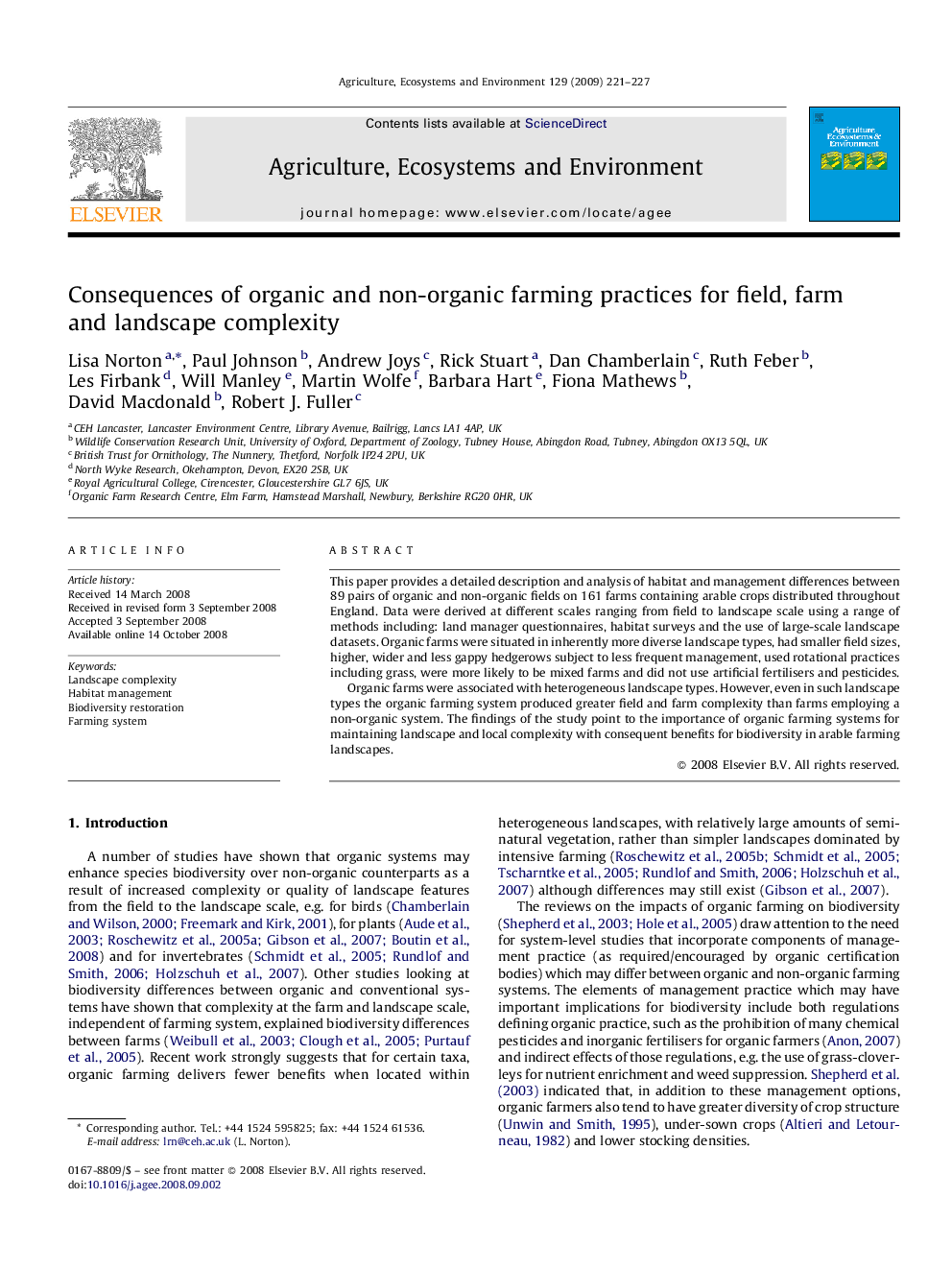| کد مقاله | کد نشریه | سال انتشار | مقاله انگلیسی | نسخه تمام متن |
|---|---|---|---|---|
| 2415318 | 1552130 | 2009 | 7 صفحه PDF | دانلود رایگان |

This paper provides a detailed description and analysis of habitat and management differences between 89 pairs of organic and non-organic fields on 161 farms containing arable crops distributed throughout England. Data were derived at different scales ranging from field to landscape scale using a range of methods including: land manager questionnaires, habitat surveys and the use of large-scale landscape datasets. Organic farms were situated in inherently more diverse landscape types, had smaller field sizes, higher, wider and less gappy hedgerows subject to less frequent management, used rotational practices including grass, were more likely to be mixed farms and did not use artificial fertilisers and pesticides.Organic farms were associated with heterogeneous landscape types. However, even in such landscape types the organic farming system produced greater field and farm complexity than farms employing a non-organic system. The findings of the study point to the importance of organic farming systems for maintaining landscape and local complexity with consequent benefits for biodiversity in arable farming landscapes.
Journal: Agriculture, Ecosystems & Environment - Volume 129, Issues 1–3, January 2009, Pages 221–227